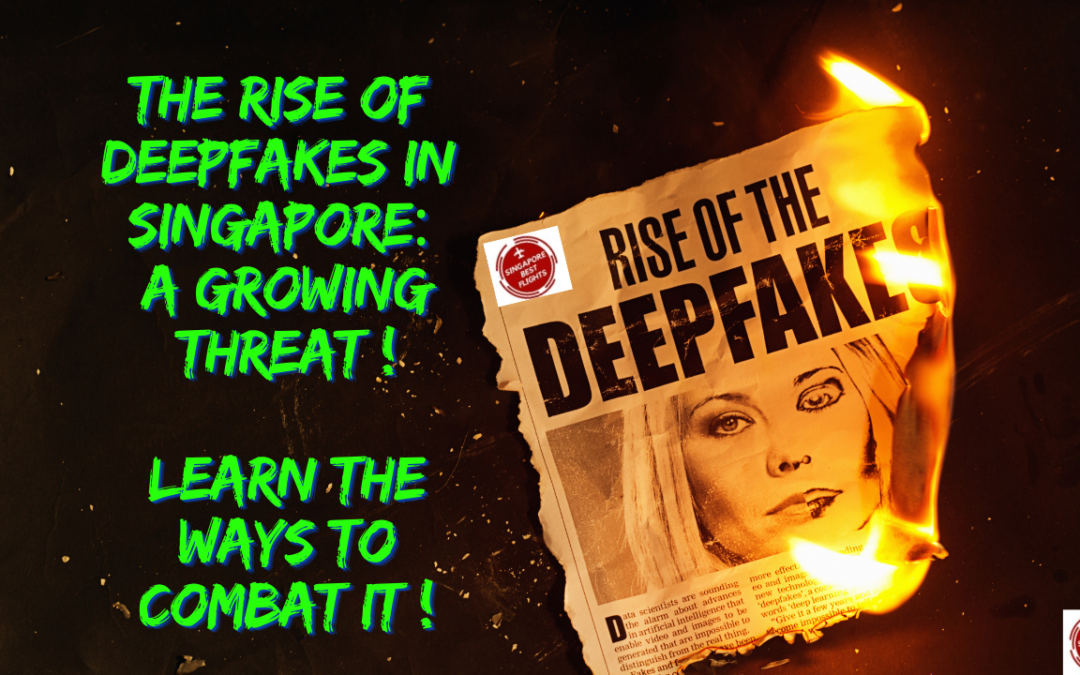In the heart of Southeast Asia, Singapore stands as a beacon of technological innovation and digital transformation. However, as technology advances, so do the threats it brings. Among these is the rise of deepfake technology, which has alarmingly increased in Singapore in recent years. This article sheds light on the growing problem, real-life cases, and proactive measures to safeguard ourselves while acknowledging the efforts of the government and law enforcement agencies.
The Deepfake Dilemma
Deepfakes, synthetic media where a person’s likeness is convincingly replaced or altered, have transcended mere entertainment. They are now tools for malicious purposes, from identity fraud to cybercrimes. The technology’s misuse in Singapore has mirrored global trends, with notable cases highlighting the urgency to address this menace.
Real Cases in Singapore
Extortion Scandals
In December 2024, over 100 Singaporean public officials, including five ministers, fell victim to an extortion scam involving deepfake technology. Emails containing fabricated explicit images of the victims aimed to blackmail them into paying ransoms. This incident highlighted the potential of deepfakes to undermine personal and professional reputations (Reference – The Diplomat).
Scam Operations
Sophisticated scammers in Singapore have employed deepfakes to mimic the voices or appearances of victims’ family members or friends. By creating fake videos or audio messages, these criminals deceive victims into transferring money, exploiting trust and emotional connections (Reference – The Straits Times).
Misuse Among Youths
In a disconcerting incident, students at the Singapore Sports School created and distributed deepfake nude images of their peers. This misuse of technology among young people underscores the importance of digital literacy and ethical awareness (Reference – The Straits Times).
A Rising Threat
Reports reveal a 240% increase in deepfake attacks in Singapore, placing the country among the most affected in the Asia-Pacific region (Channel News Asia). Businesses are not immune either—56% have faced audio deepfake fraud, while 52% have experienced video-related incidents (Reference – Security Brief Asia).
Singapore’s Response
Singapore’s government and police are not standing idle. Initiatives to combat cybercrimes, including deepfakes, are in full swing. The Cybersecurity Agency of Singapore (CSA) has launched awareness campaigns to educate the public about emerging threats. Law enforcement agencies are leveraging advanced AI tools to detect and prevent deepfake-related crimes. Furthermore, collaborative efforts with global organizations aim to establish stricter international regulations on AI misuse.
What Can We Do?
While the authorities are doing their best, responsible citizenship is crucial in combating deepfake threats. Here’s how you can protect yourself and your loved ones:
1. Verify Before Believing
Always double-check the authenticity of media. Look for signs of tampering, such as unnatural facial movements or inconsistent audio. When in doubt, cross-check with the person or organization purportedly featured.
2. Strengthen Cybersecurity
Secure your devices and accounts. Use strong, unique passwords and enable two-factor authentication. Be cautious of sharing personal information on social media, as it can be used to create convincing deepfakes.
3. Educate Yourself and Others
Knowledge is power. Stay informed about the latest scams and tactics involving deepfakes. Share this knowledge with family and friends, especially those who may be less tech-savvy.
4. Report Suspicious Activity
If you encounter deepfake-related content or scams, report them to the authorities immediately. Early reporting can prevent further harm and help law enforcement track down perpetrators.
5. Support Ethical AI Use
Encourage conversations around ethical AI development. Advocate for policies and practices that promote transparency, accountability, and the responsible use of technology.
Looking Ahead
Deepfakes represent a dual-edged sword—an incredible feat of technology that can entertain and educate, but also a dangerous tool in the wrong hands. As Singaporeans, we must rise to the challenge by staying vigilant and informed. Together, with a united front of government initiatives, law enforcement efforts, and responsible citizen actions, we can minimize the impact of deepfake technology.
In 2025, let us make it our collective mission to foster a safer digital environment. Remember, every small action—whether it’s verifying a video, securing your devices, or educating a neighbor—contributes to a larger cause. Deepfakes may be on the rise, but so is our capacity to counter them.
Stay safe, stay informed, and let’s build a digitally secure Singapore.
Access www.scamshield.gov.sg which is a one-stop information and resources portal on scams.
Call ScamShield helpline @ 1799 (Available 24/7, Monday to Sunday) to check if you are unsure if something is a scam, or if you have any scam-related queries.
Reference – https://www.police.gov.sg/Advisories/Crime/Scams

